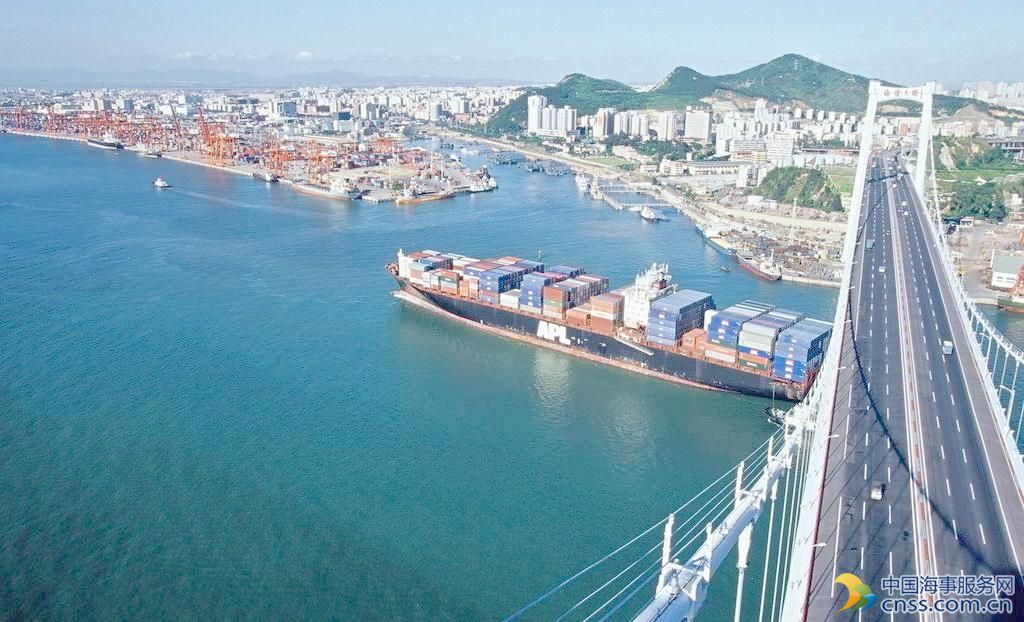Tacoma Seafarers’ Center isn’t home, but for many, it helps

It’s 4 a.m. in the Philippines, but it’s also Joemar Clement’s last chance to see his wife’s face for at least 11 days.
There are other ways for him to contact her and his two young children — the shipping containership he works on has satellite phones to make calls, and he can send text messages.
But the only way the family can use Skype for a video chat is with Wi-Fi, and the easiest place to find that are in seafarer centers in ports.
So on a recent Friday afternoon, Clement sat quietly in the corner of the Tacoma Seafarers’ Center lounge, having that last face-to-face conversation with his wife until he reaches a Japanese port in about two weeks.
He was surrounded by other containership seamen, speaking softly into their own devices, or dozing while they waited for their smartphone’s chirp that meant a loved one had replied to their text.
Clement, a seafarer for 27 years, said typically, it takes about four weeks for a first-time seafarer to get used to missing their family. After that, it gets easier.
“You just pretend. You hope. You buy them something,” Clement said. “You think of money for the future.”
Under his current contract, Clement works at sea six months every year. He isn’t paid during the months he spends at home but is always on call. His next break is in October.
Now, he was one of 25 crew members in Tacoma on July 1, while their ship’s cargo was unloaded, and one of about 700 sailors who each month use the center at 1118 Port of Tacoma Road.
“Basically, we welcome the world to Tacoma,” said center director Paul Peterson.
Without such centers, many seafarers — who often aren’t confident in their English and can fall prey to scams — don’t feel comfortable venturing off their ships when they land in a foreign port, he said.
In addition to offering free Wi-Fi, the center also provides free rides to shopping locations around the city, including Costco, Walmart and the Tacoma Mall. This is one of the most popular services, Peterson said.
By cultivating a welcoming space for the seafarers, the center hopes to give them somewhere to unwind — which can be hard to come by on board the freighters, Peterson said.
“I feel like I’m helping people all over the world,” he said.
The center, a nondenominational, nonprofit ministry, has an annual budget of about $100,000. It’s run entirely on donations from local churches and other organizations, individuals and the occasional shipping company.
Peterson and the center’s other 20 volunteers do their best to make the environment as homey as possible.
“If you just smile and are friendly, that breaks down all barriers,” he said. “You make friends in five minutes.”
The lounge is filled with soft couches and chairs, books, world maps and clocks displaying various international times. A majority of seafarers are Asian, but because about a third are Filipino, the television often is quietly showing The Filipino Channel.
The walls are lined with vitamins, toiletries, hoodies, postcards and snacks from a local Filipino store, all available for sale to the seafarers.
Before a crew comes ashore, the center gives them a temporary pass that allows them to go anywhere in the city, he said. The center’s vans will take seafarers anywhere they want to go, as long as the area is safe and they want to go before 8:30 p.m.
Occasionally, sailors want to enjoy Tacoma’s nightlife after the center closes, Peterson said. In those cases, it’s up to the seafarers to get a ride back to their ships.
Tacoma police spokesperson Loretta Cool said she has never heard of a seafarer getting into trouble while in the city.
But if one did, a felony would land the sailor in jail, she said. For anything less, officers would contact the ship’s captain to take care of the situation.
Jaime Baliling, a Filipino seafarer on a Korean freighter carrying 3,400 Kia cars, said he was most excited to visit the Tacoma Mall to buy electronics.
“The U.S. is cheaper,” he said as several companions talked and laughed in the full van around him. “The quality is good.”
Baliling, who became a seafarer five years ago, said that at first it was a lonely life, but now roaming the sea makes him feel free.
This was his second landing in Tacoma, and with the prospect of venturing back out into the city, he and his companions practically skipped off their ship.
As for Clement, he prefers to stay in the center.
“You can relax,” he said. “Go back to the ship, go to the internet, you have some stuff to buy here.”
Clement bought a few things from the center: a packet of popcorn and a container of soap. The popcorn he would make for himself back in his cabin.
The soap he would save for the family, waiting for him back home.
Source: News Tribune
HEADLINES
- Do shipping markets want Biden or Trump for the win?
- All 18 crew safe after fire on Japanese-owned tanker off Singapore
- Singapore launching $44m co-investment initiative for maritime tech start-ups
- Cosco debuts Global Shipping Industry Chain Cooperation Initiative
- US warns of more shipping sanctions
- China continues seaport consolidation as Dalian offer goes unconditional